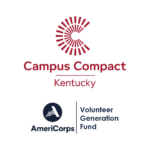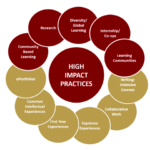VISTA Spotlight: Stephanie Jones
Meet Stephanie Jones
 “I am a first-seed, lifetime resident of Somerset, KY,” Stephanie Jones said. “I am the mother of two daughters and a caregiver for my mom.”
“I am a first-seed, lifetime resident of Somerset, KY,” Stephanie Jones said. “I am the mother of two daughters and a caregiver for my mom.”
She serves as a KyCC VISTA for the Kentucky Community and Technical College System, housed at Somerset Community College (SCC) in Somerset, Kentucky. This institution offers academic, general education, and technical curricula leading to certificates, diplomas, and associate’s degrees. SCC is also accredited by the Commission on Colleges of the Southern Association of Colleges and Schools.
Jones is a lifetime learner, earning an Associate in Arts from 1999, with general education to transfer to her original goal of obtaining a Bachelor’s Degree in teaching at Berea College. This goal was rerouted as she had her first child and started a family in 1997. After having her second child and needing to re-direct her career path, Jones obtained an Associate in Science with a Business focus in 2007. She earned her Bachelor of Arts at Eastern Kentucky University in 2017 while working as an administrative assistant to the manager of the EKU Somerset site.
Jones’s professional background is in the secondary-school sector with substitute teaching and teaching pre-school; as well as office management and administrative roles in private-owned businesses including a cabinetry and counter-top manufacturer, pallet mill, attorney’s office, and a university.
An impactful story from her service is when her team was awarded an NSF ATE grant project. The project is titled: “Improving Technician Skills in Advanced Manufacturing with a Low-Cost Virtual Reality (LCVR) Platform.” This project encompassed the collaborative efforts of several diverse and multidisciplinary faculty members with different academic backgrounds from two rural institutions in Kentucky and Tennessee and one urban institution in Washington state. The Somerset Community College LCVR team will work with Tennessee Technological University (TTU) staff to develop educational modules based on their expertise. The team was awarded $575,546 for the project!
The ultimate outcome of the project is to remove the barrier to the widespread use of virtual reality (VR) in technician education through the creation of a network of over 30 community colleges capable of creating, collaborating on, and sharing effective and customizable low-cost virtual reality educational materials for advanced manufacturing technicians.
As a result of this project, a pool of community college educators in Science, Technology, Engineering, and Math (STEM) and Career and Technical Education (CTE) disciplines will be trained to utilize the manufacturing tools developed. The training of the manufacturing educators, deliverables, and publications that the team is expected to produce will help promote the level of academic institutions in the United States. The team will also provide a unique faculty development opportunity for community college educators in STEM, CTE, and manufacturing education.
When asked about a key takeaway for her experience, Jones concluded with a meaningful influence from one of her colleagues. The limited grant department has one staff member, carrying multiple campuses and sites with many obligations in the 15-county region.
“She is bringing it!” Jones exclaimed. “Her desire to create opportunities for regional student success is evident in all of her efforts. Her department definitely needs support staff to prevent her burn-out and make her load a bit lighter.”


